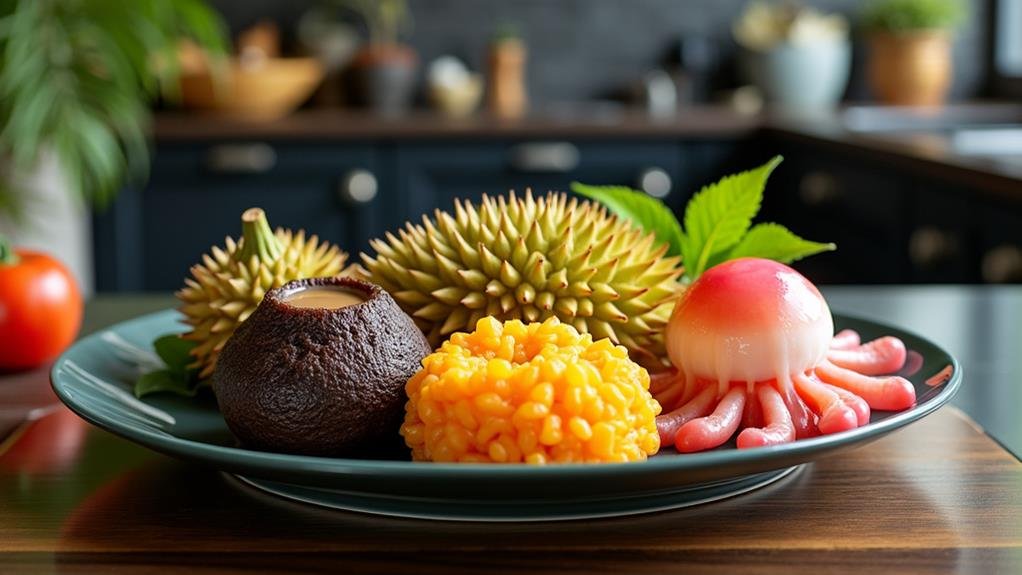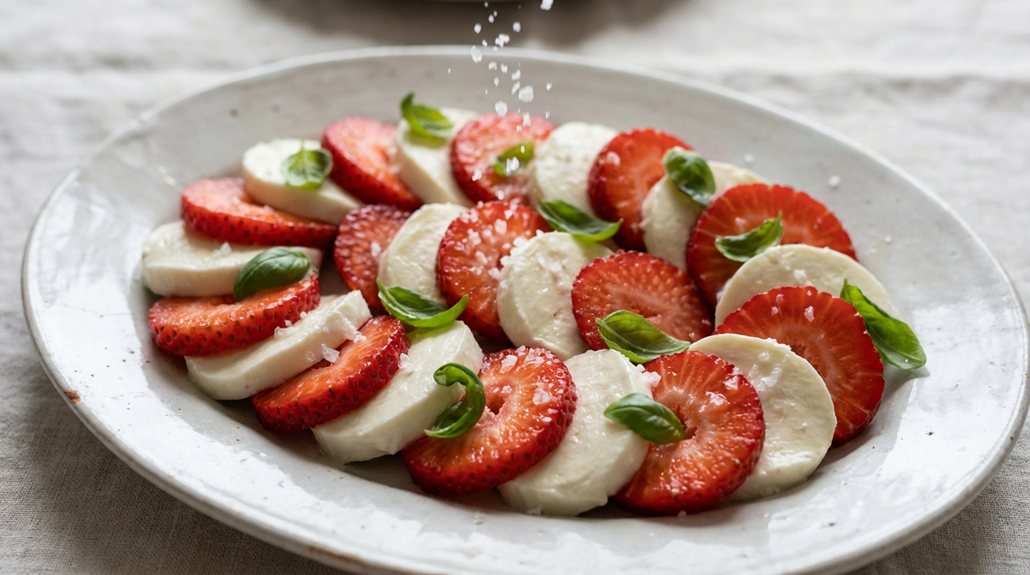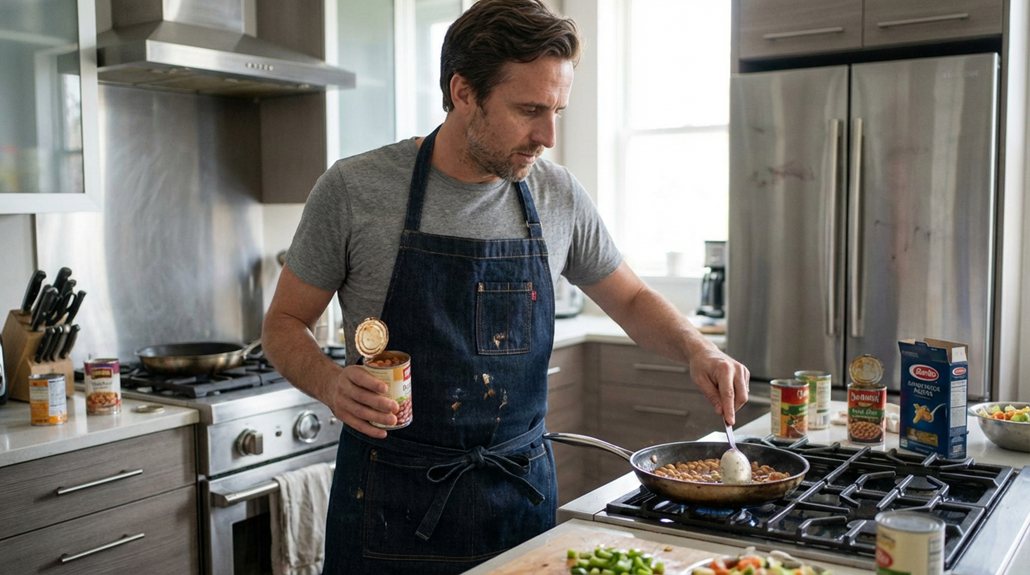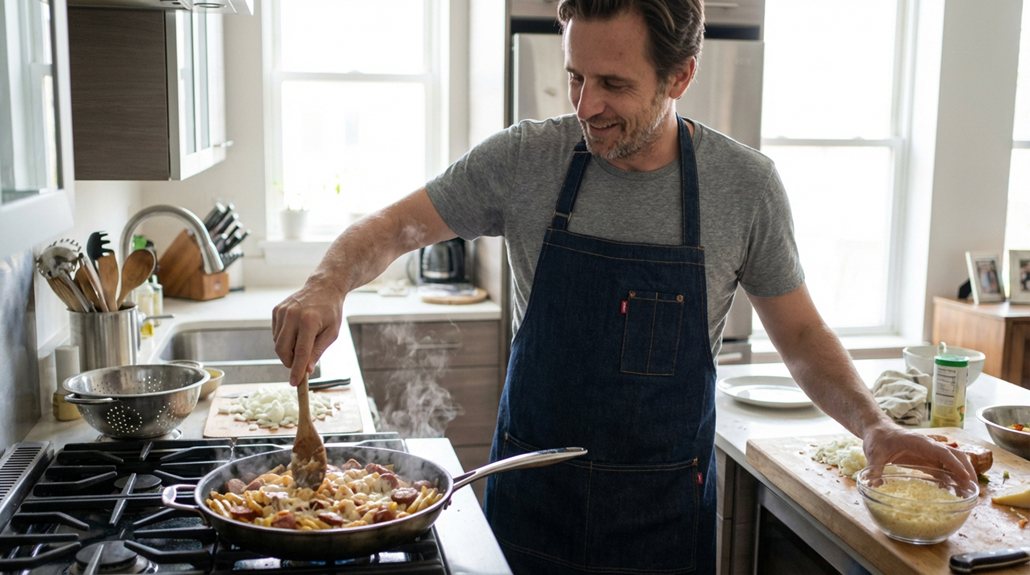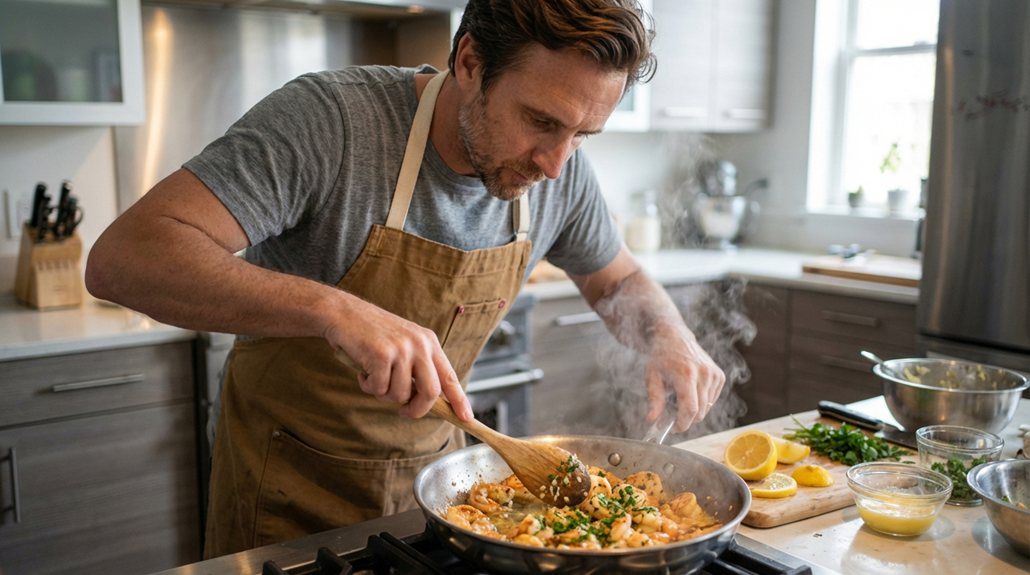Gordon Ramsay's food preferences are particularly strict, with several surprising refusals. He actively avoids pineapple on pizza, believing it undermines the dish's integrity. Ramsay also shuns unconventional insect dishes, like Peruvian cactus worms, comparing them unfavorably to crispy cockroaches. Moreover, he dislikes deep-fried foods, especially turkey, favoring roasting or grilling to enrich flavors. Ramsay is skeptical of vegan cuisine, often finding it lacks depth and quality. He prioritizes fresh, unprocessed ingredients, asserting they contribute to both flavor and nutrition. If you're curious about more unexpected culinary stances from Ramsay, keep exploring.
Unconventional Insect Dishes
When it comes to unconventional insect dishes, Gordon Ramsay firmly draws the line at critters like Peruvian cactus worms. Insects are becoming popular in culinary circles for their sustainability and unique flavors, but Ramsay prefers to steer clear of this trend. He likens these worms to crispy cockroaches, emphasizing his distaste for such unusual fare. For many adventurous eaters, incorporating insects into meals can be liberating, allowing for the exploration of new tastes and textures. However, appreciating the culinary landscape also requires an understanding of flavor profiles and cooking techniques, much like the rich and satisfying experiences offered by premium cuts of lamb.
Ramsay's viewpoint highlights an important aspect of food culture: not all culinary innovations find universal acceptance. He believes that while food experimentation can lead to exciting discoveries, some ingredients simply don't resonate with everyone, particularly when they challenge traditional palates.
Ramsay's reluctance to embrace insects reflects a broader conversation about culinary preferences, where personal choice prevails. It's vital to recognize that tastes vary widely, and what excites one chef may repulse another. For those brave enough to explore insect cuisine, the realm of unconventional dishes presents endless options. However, it's clear that Ramsay remains committed to his culinary philosophy, prioritizing flavors that align with his classic cooking style.
Controversial Pizza Toppings
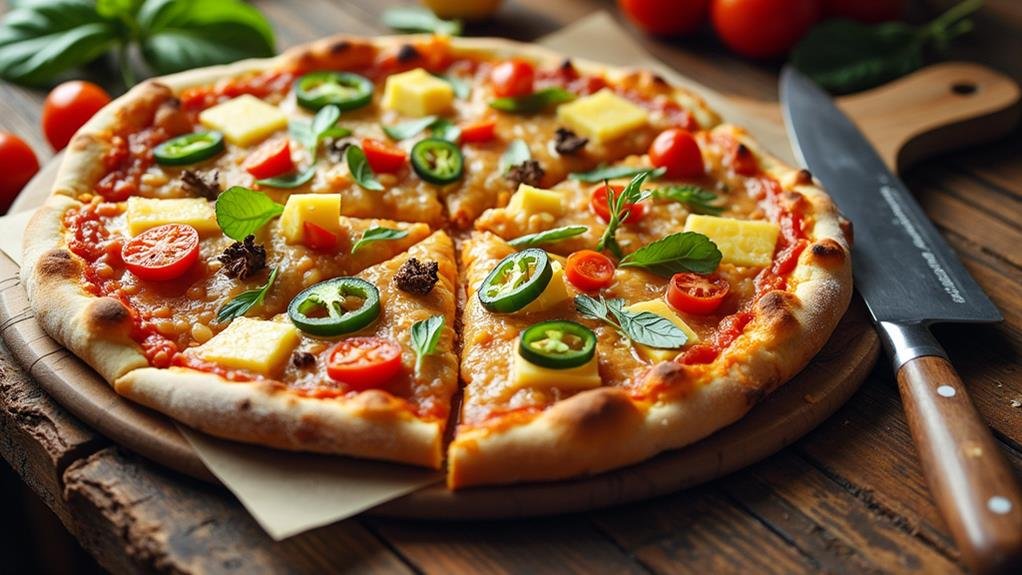
When delving into unique culinary choices like insects, the discussions around controversial pizza toppings become impossible to overlook. Renowned chef Gordon Ramsay has specific aversions, particularly regarding pizza toppings. He notoriously criticizes the inclusion of pineapple, labeling it a culinary offense. His discerning taste reflects a dedication to quality, akin to his approach to upscale dishes such as his signature Hell's Kitchen blue cheeseburger recipe.
For those interested in toppings that might provoke strong opinions, consider the following:
- Chocolate and Bacon: This combination often garners mixed reactions. Ramsay finds this pairing distasteful, as it deviates excessively from classic flavor profiles.
- Anchovies: These salty seafood items create a divide among pizza lovers, with many either adoring or detesting them. Ramsay advises against them if you want to maintain a delightful pizza experience.
- Barbecue Sauce: While some pizza aficionados appreciate the smoky taste, Ramsay contends that it overshadows the true essence of pizza, transforming a beloved dish into something unrecognizable.
In the end, appreciating the diversity of food means understanding your individual tastes. So, when you place your next pizza order, consider which toppings resonate with your palate – and perhaps avoid those that even Gordon Ramsay would reject.
Disliked Cooking Methods
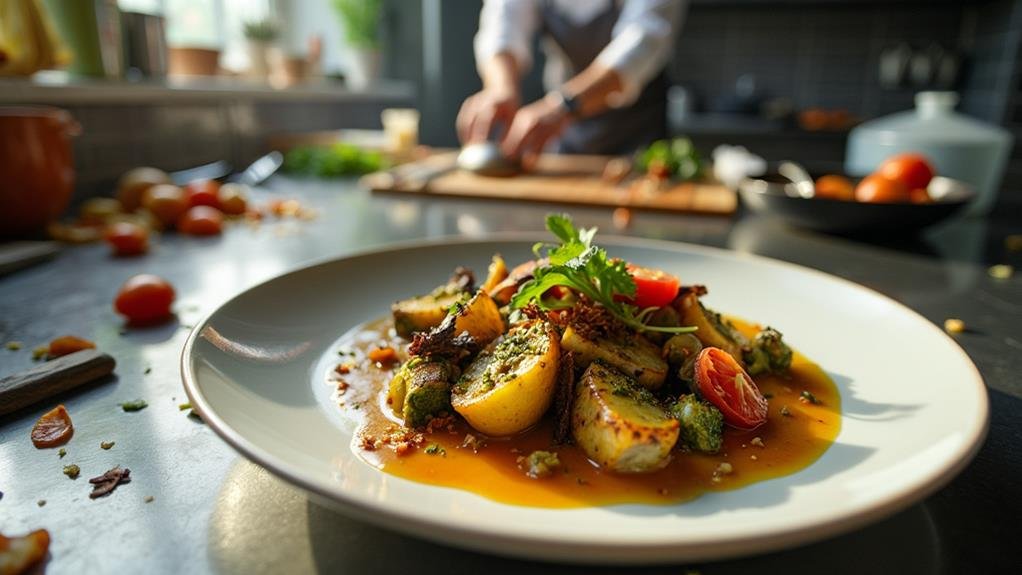
Gordon Ramsay, a renowned chef, has strong views on cooking methods that can change your kitchen game. He dislikes deep-frying, especially turkey, because it often results in dry meat. Instead, he advises roasting or grilling, which enhances flavor while keeping the meat juicy. Ramsay prioritizes quality in cooking, akin to his endorsement of HexClad Japanese knives, designed for precise cutting and excellent performance.
Ramsay also frowns upon using frozen ingredients. He insists that fresh produce and quality meats are essential for creating vibrant, flavorful dishes. Relying on frozen items can lead to bland taste and poor texture, which he finds unacceptable. Additionally, Ramsay critiques sous-vide cooking, despite its popularity. He argues that while sous-vide can make food tender, it often misses the essential flavors that come from traditional methods. He encourages cooks to embrace techniques like searing and braising to develop richer taste profiles.
Avoidance of Processed Foods
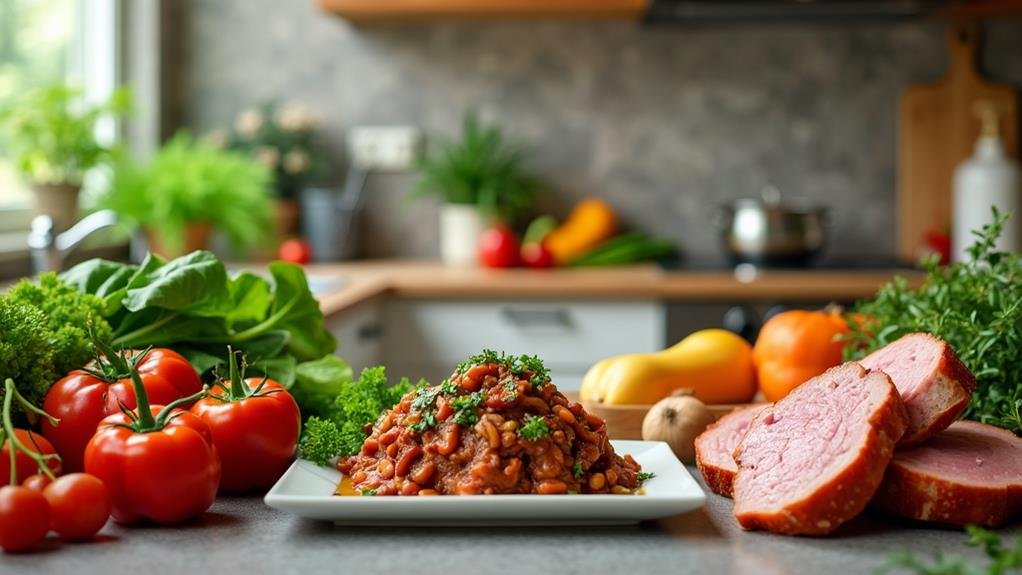
Many culinary experts, including Gordon Ramsay, champion the use of unprocessed ingredients over packaged foods for their superior quality and freshness. Ramsay asserts that these fresh components not only enhance the flavor profiles of your meals but also contribute to a healthier lifestyle. By avoiding packaged options, you can savor dishes that are rich in nutrients and taste, similar to the wholesome cooking promoted by brands like GreenPan. Here are three compelling reasons to steer clear of packaged foods:
- Nutritional Benefits: Fresh produce, herbs, and meats are often abundant in essential vitamins, minerals, and antioxidants, ensuring your body receives necessary nourishment.
- Flavor Enhancement: Fresh ingredients provide a depth and complexity that packaged foods lack. Cooking with high-quality components elevates your culinary creations.
- Ecological Impact: Opting for fresh, locally-sourced ingredients supports local farmers and diminishes your environmental footprint, fostering a more sustainable food ecosystem.
Skepticism Towards Vegan Options
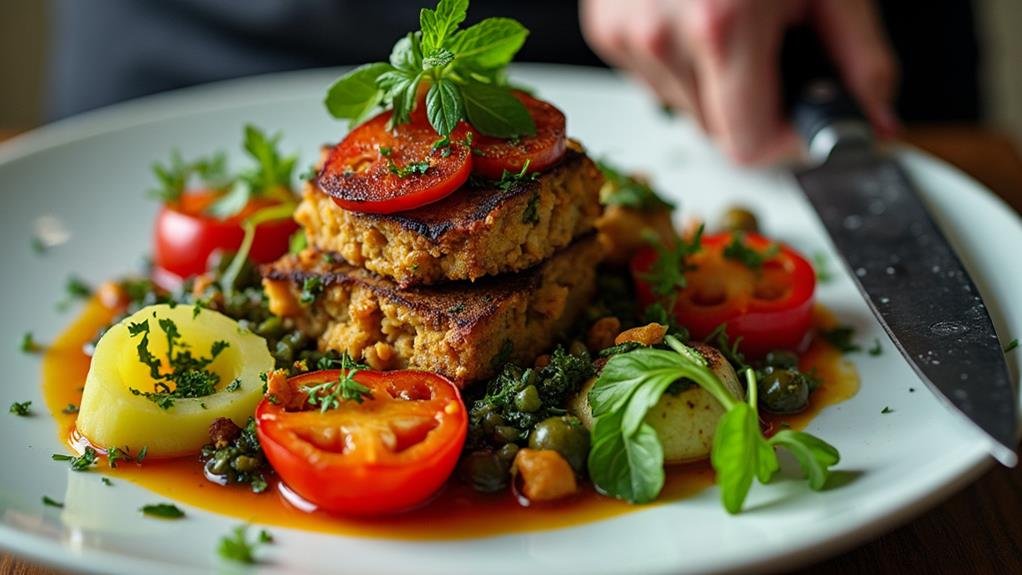
Gordon Ramsay often expresses skepticism towards vegan options, questioning the culinary integrity and flavor of plant-based dishes. Although vegan cuisine has gained traction, Ramsay argues that many selections lack the depth and richness found in traditional meat-based meals. His dedication to quality and fresh ingredients, fundamental to his culinary brand, leads him to assert that replicating the satisfying flavors of meat with only vegetables is a considerable challenge. This skepticism stems from his belief that exceptional cooking typically involves a balance of flavors that includes animal proteins.
Ramsay's critique extends beyond taste; he emphasizes preparation methods as well. He notes that numerous vegan meals can become overly processed or depend on substitutes that fail to provide the same satisfaction as their meat-based counterparts. For diners, this signals the importance of seeking out vegan dishes crafted with creativity and respect for the ingredients.
While Ramsay encourages chefs to explore plant-based flavors, he remains steadfast in his conviction that a well-rounded meal often incorporates meat. His perspective invites food enthusiasts to reflect on the culinary journey offered by both vegan and traditional dishes, urging an appreciation for the intricate flavors present in every bite.
